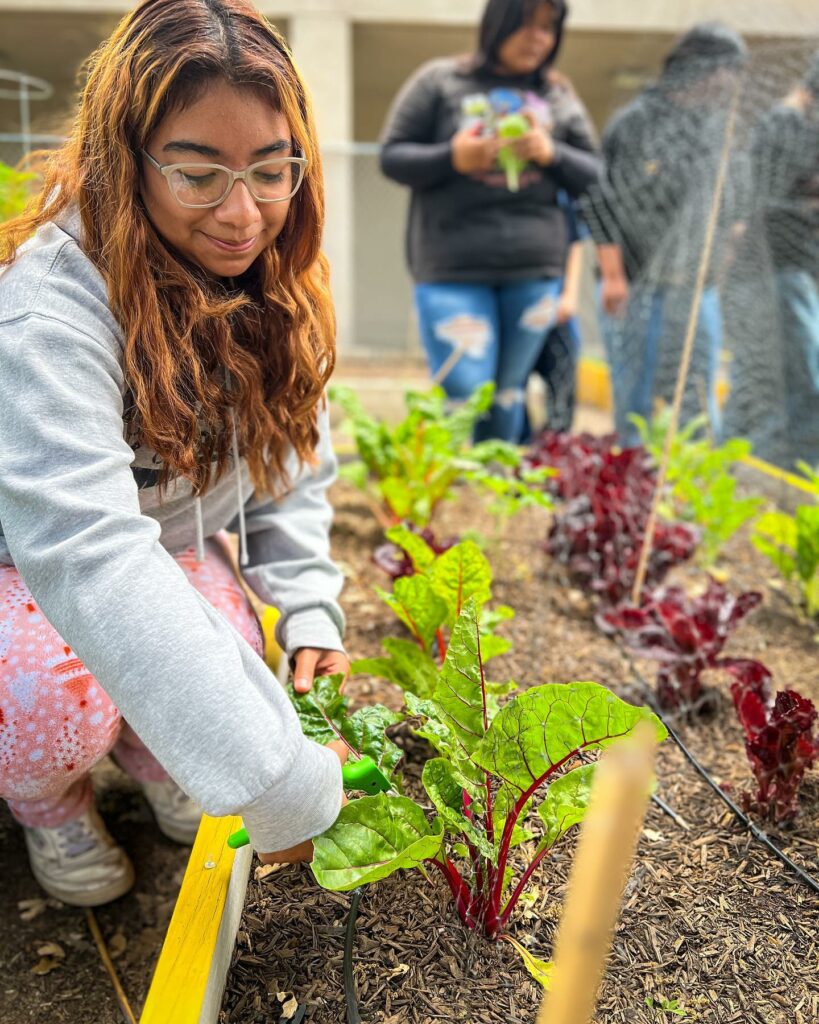An OCDE coordinator and a regional director from Cal State Fullerton were recently named semifinalists for MIT Solve’s 2023 Global Challenges, which seeks social entrepreneurs who are using technology to solve today’s most pressing problems.
Orange County Department of Education Humanities Coordinator Dr. Virginia Reischl and Dr. Lisa McAllister, the regional director of the California Global Education Project at Cal State Fullerton, submitted their solution titled “Sustainable Schoolyards: Repurpose, Connect, Engage” in the learning for civic action category. MIT Solve narrowed hundreds of entries from across the globe down to 50 semifinalists, who will find out if they have advanced to the finalist stage by June 30.
“Upon receiving the email from MIT Solve about our semifinalist standing, we were elated and profoundly humbled,” said Dr. Reischl. “It was an affirmation of our team’s hard work and dedication to our solution. It was also a validation of the potential of our project to bring real change in the realm of civic education.”
Solve, an initiative of the Massachusetts Institute of Technology, is on a mission to drive innovation to solve world challenges. Specific categories include financial inclusion, health in fragile contexts, learning for civic action, climate adaptation and low-carbon housing, and indigenous communities. Finalists who are selected to be part of the Solver team will join a nine-month program with a network of impact-minded leaders and receive access to funding, grants and other investments.
With assistance from OCDE Grant and Funding Project Manager Natalie Lohrenz, Reischl and McAllister’s submitted a solution that looks at how sustainable schoolyards can build educational outdoor environments and foster community partnerships while preparing students to become future civic leaders. According to their entry, the team believes their project will engage teachers and students to co-create small-scale, low-cost solutions to sustainability issues in their school or community’s outdoor spaces.

Their project is currently in its second year. In 2023, they expanded the program with 18 teachers and 540 students across eight campuses. Three of the schools are located in Orange County.
One of these partnerships is with a teacher and students from Valencia High in the Placentia-Yorba Linda Unified School District, where young people who come from low-income and minority households have expressed concerns about inflation and the rising cost of food. Together, they created a club and community garden on campus that helps students learn the process of growing food, giving a number of families access to fresh produce.
In addition to training teachers, Reischl and McAllister’s solution connects educators and students with community partners and teams across the state through a virtual exchange to foster a sense of community and create a collaborative environment.
“Looking forward to the update on June 30, we are hopeful,” said Reischl. “Whether or not we advance further, we are inspired to continue refining our project and expanding our project. The recognition from MIT Solve has given us even more motivation to continue with our mission.”
Semifinalists who receive the finalist standing will be interviewed and vetted by the MIT Solve’s program judges. Participants who make it to the final round of being assigned to a Solver team will be invited in September to the Solve Challenge Finals in New York City, where the lineup of speakers include United Nations Deputy Secretary-General Amina J. Mohammed and Prime Minister of Canada Justin Trudeau.
Educators and the public can learn more about Reischl and McAllister’s solution by visiting the Global Challenges site.
